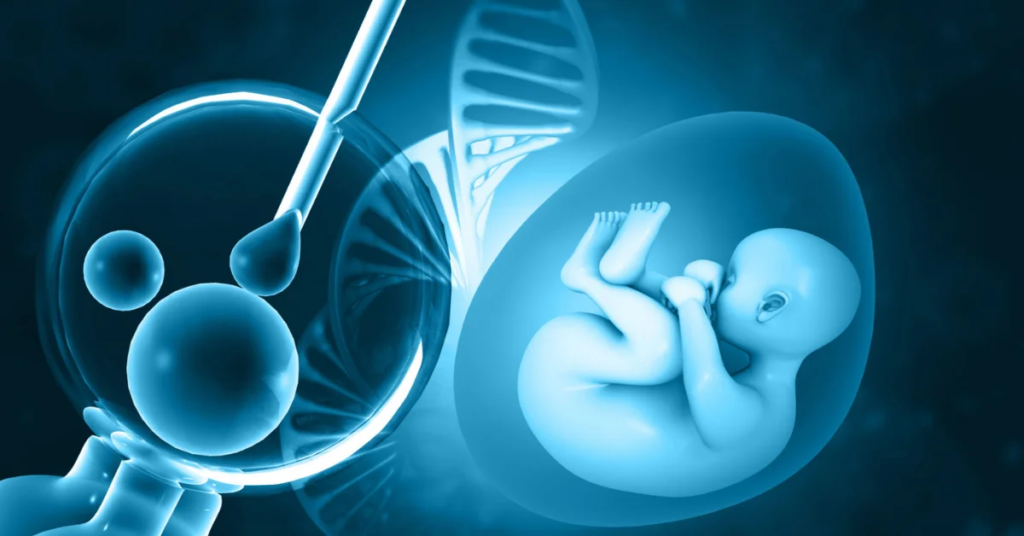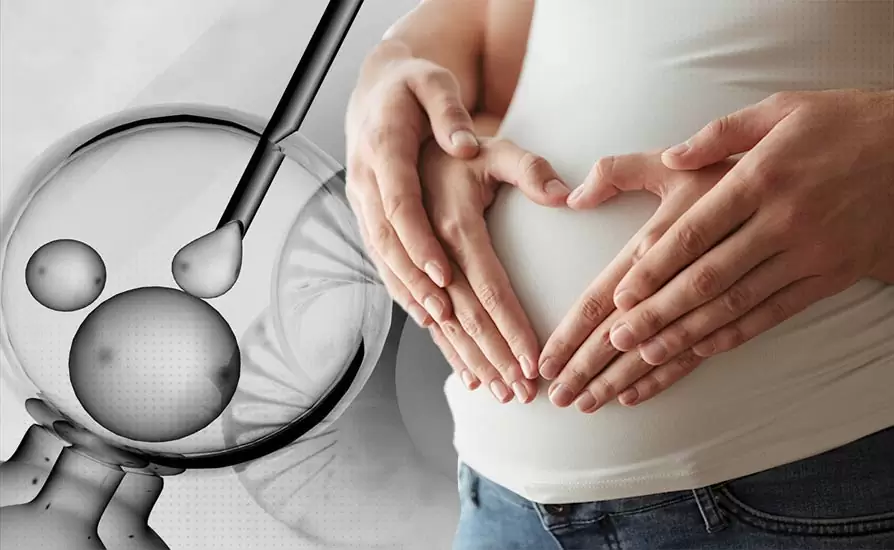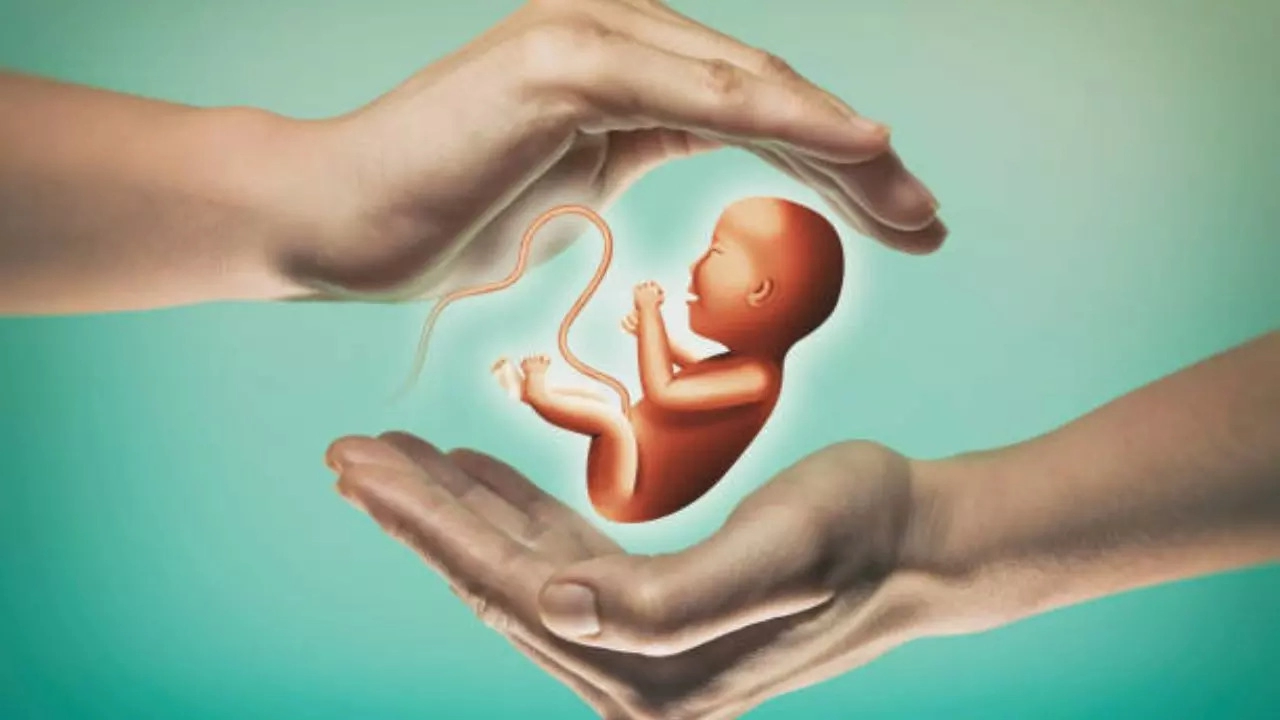IVF babies are at a significantly higher risk of being born with serious heart defects compared to babies conceived naturally. According to a large-scale study published in the European Heart Journal, the risk of congenital heart defects in IVF babies is 36% higher than in those conceived without assisted reproductive technology (ART).
This study sheds new light on the potential health risks associated with ART procedures like in vitro fertilization (IVF) and emphasizes the importance of early diagnosis and intervention for heart defects in these infants.
Higher Risk of Congenital Heart Defects in IVF Babies
Congenital heart defects are the most common type of birth defects, some of which are severe and can lead to life-threatening complications.
Researchers led by Professor Ulla-Britt Wennerholm from the University of Gothenburg, Sweden, set out to explore whether the risk of heart defects was higher for IVF babies compared to those conceived naturally.
Read : Doctors Pull Out Baby with C-Section Moments After Mother Killed in Airstrike in Gaza
Their findings confirmed a higher risk, particularly in the case of multiple births, which are more common with assisted reproductive technologies.
The study, which examined data from more than 7.7 million liveborn children across Denmark, Finland, Norway, and Sweden between 1984 and 2015, compared babies born after assisted reproduction—including IVF, intracytoplasmic sperm injection (ICSI), and embryo freezing—with those conceived naturally.
Read : Allyson Felix Launches First-Ever Olympic Village Nursery for Athletes’ Kids at Paris Olympic 2024
The results showed that heart defects were 36% more common in IVF babies (with an absolute risk of 1.84%) compared to naturally conceived babies (1.15%).
The Role of Multiple Births in Increased Risk
One of the critical insights from the study was that the risk of heart defects was even more pronounced in multiple births resulting from assisted reproduction.
For IVF babies born as part of multiple births, the risk of congenital heart defects was 2.47%, significantly higher than the 1.62% risk for singleton IVF births. This finding highlights the challenges associated with multiple pregnancies, a common outcome of ART procedures.

Professor Wennerholm emphasized that while it is already known that IVF babies have a higher risk of birth defects in general, this research specifically points to an elevated risk of congenital heart defects.
The similarity in risk across different types of ART (IVF or ICSI, fresh or frozen embryos) suggests that a common factor may be linking infertility in parents and heart defects in their babies.
Implications for Early Diagnosis and Treatment
Congenital heart defects can be extremely serious, often requiring specialized surgery when babies are very young. The earlier these defects are diagnosed, the better the chances of providing the necessary care and treatment.
For IVF babies, knowing that they are at a higher risk of heart defects can prompt healthcare providers to closely monitor these pregnancies and newborns for early signs of cardiac issues.
With the increasing number of people relying on assisted reproductive technologies to conceive, Professor Wennerholm anticipates a potential rise in cases of congenital heart defects worldwide.
This study underscores the importance of further research to understand the underlying causes of these heart defects in IVF babies and to develop better preventive measures and treatments.

Assisted Reproductive Technology and Health Risks
Dr. Nathalie Auger from the University of Montreal Hospital Research Centre, in an accompanying editorial, pointed out that while most IVF babies are born healthy, ART procedures are not without risks.
Assisted reproductive technologies account for 2% to 8% of births in many countries, making it a common intervention in reproductive medicine. However, the use of ART is often associated with underlying health conditions in parents that may contribute to both infertility and the increased risk of heart defects in their babies.
Dr. Auger also noted that this study is one of the largest of its kind, providing valuable insights into the relationship between assisted reproductive technologies and congenital heart defects.
Patients who use ART often differ from the general population, with underlying morbidities that can affect both fertility and the health of their babies.
This makes it crucial to identify risk factors and ensure that IVF babies receive appropriate medical attention from the earliest stages of development.
Understanding the Causes of Heart Defects in IVF Babies
One of the central questions raised by this research is why IVF babies are at a higher risk of congenital heart defects. The fact that the increased risk is similar across different ART procedures suggests that infertility itself may play a role. There could be genetic or environmental factors associated with infertility that also contribute to heart defects in offspring.

The research team took into account various factors that could increase the risk of congenital heart defects, including the year of the child’s birth, the country of birth, the mother’s age, whether the mother smoked during pregnancy, and whether the mother had diabetes or heart conditions.
Despite accounting for these factors, IVF babies consistently showed a higher risk of heart defects, indicating that ART may be a contributing factor.
As more and more couples turn to assisted reproductive technologies, it is essential to continue researching the long-term health outcomes for IVF babies. Understanding the specific risks associated with ART, including congenital heart defects, will help healthcare providers offer better care and guidance to families undergoing these treatments.
Professor Wennerholm and her team’s findings highlight the need for early screening and monitoring of heart health in IVF babies. By identifying at-risk infants as early as possible, healthcare professionals can intervene with appropriate treatments and improve outcomes for these children.
As this field of research continues to evolve, future studies will likely focus on identifying the precise causes of heart defects in IVF babies and finding ways to mitigate these risks.
With the growing popularity of assisted reproductive technologies, ensuring the health and well-being of these babies will remain a top priority for medical professionals and researchers alike.
The findings from this large-scale study bring attention to the increased risk of congenital heart defects in IVF babies. While ART procedures have helped countless families achieve their dreams of parenthood, they are not without risks.
The research emphasizes the importance of monitoring and early diagnosis to ensure that IVF babies with heart defects receive the care they need. As the use of assisted reproductive technology continues to grow, understanding and addressing the health risks associated with these procedures will be vital for the future of reproductive medicine.
let’s enjoy few years on earth with peace and happiness….✍🏼🙏

